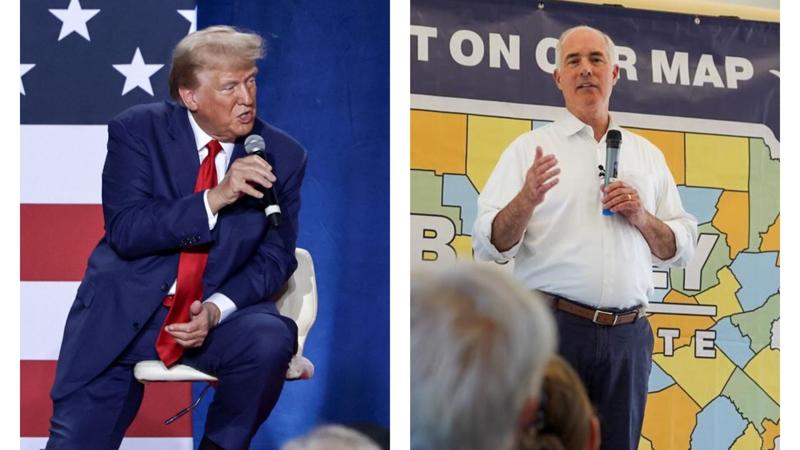Leading polling averages for the top two national races in Pennsylvania are split between Republican and Democrat.
Former President Donald Trump and incumbent U.S. Sen. Bob Casey Jr., D-Pa., top the RealClear polling averages at 0.3 percentage points and 3.9 percentage points, respectively.
Trump’s razor-thin margin comes after winning seven of the last 20 polls conducted since Sept. 11, the day after his debate with Vice President Kamala Harris. Of note, Harris’ lead has been as high as 5 percentage points in seven polls, including two in the aftermath of the ABC matchup in Philadelphia.
The former president’s leads have been less significant, only besting Harris by as much as 3%.
The remaining six polls are tied.
In the race for U.S. Senate, Casey has bested Republican challenger Dave McCormick in all but two polls – in which the candidates were tied – since March 27, long before the state’s primary election.
In the last nine polls on which the RealClear Politics average is based, Casey has a 3.9-point average, though he’s led by as much as 9 points in a Fox News poll conducted between Sept. 20 and Sept. 24.
The incumbent Democrat has seemingly benefited from a post-debate bump. In the last three polls held since the Oct. 3 matchup, he’s bested McCormick by as many as 8 points.
The split among the top two races further illustrates the contested nature of Pennsylvania’s electorate. Arguably the most pivotal battleground in the November election, the commonwealth’s 19 electoral votes are considered a key piece of both presidential candidates’ path to the White House.
And according to Emerson College Polling and RealClear Pennsylvania poll conducted in late September, economic concerns are what keeps Trump and Harris neck-and-neck.
The poll asked 1,000 likely voters in the commonwealth and has a margin of error of three percentage points.
A Marist poll released nine days after the debate produced the same split. The survey questioned 1,476 voters and has a margin of error of +/- 3.2%.






